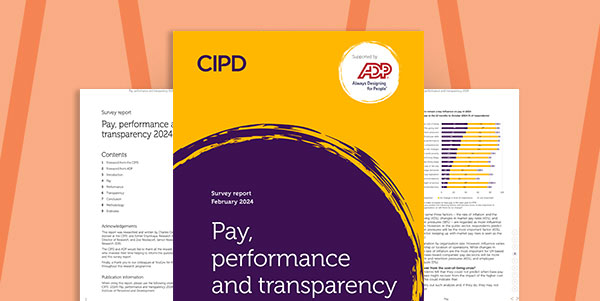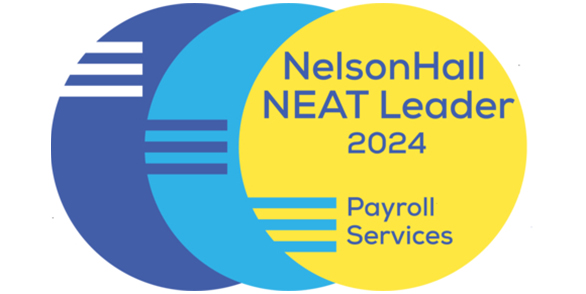Payroll is the process of getting your people paid for the work they do. It’s a complex process that involves calculating wages accurately, withholding deductions, and processing payments to employees in a timely and fair way. HR teams or the accounting department usually manages it, and it’s one of the central aspects of running a business.
Keeping on top of payroll can be a challenge for business owners. Incorrectly managed payroll can result in non-compliance with tax and labour laws, risking hefty fines or worse. Additionally, poorly managed payroll is a source of employee disappointment and can lead to reduced staff morale.
There are some essential payroll ‘Do’s and Dont’s’ every business owner should know–we’ll guide you through pitfalls and the positives of payroll management so you can follow the best practices and avoid any unnecessary errors.
Dos for payroll management
- Do: ensure accuracy in wage calculations and deductions.
As an employer, you need to be accurate when calculating wages and any deductions. This helps you maintain trust with your employees and avoid any disputes–and loss of credibility in the process. - Do: Keep accurate and detailed payroll records.
Up-to-date, accurate and detailed recordkeeping ensures you stay on the right side of the law. This improves your legal and financial transparency and enables a smooth process if you are ever audited or investigated. - Do: Stay up to date with tax regulations.
HMR’s tax rules are ever-changing, and it’s your duty to stay up to date with the changes if managing your own payroll (this is why many businesses choose to outsource.) Staying clued up on tax regulations prevents expensive mistakes and the potential for legal disputes. - Do: Communicate clearly and transparently with employees about payroll matters.
Communication is the cornerstone of good HR practice. Your team needs to speak openly and transparently with employees to foster a relationship built on trust. This reduces the chance of errors or disputes being made.
Don'ts for payroll management
- Don’t: Misclassify employees as independent contractors.
HMRC has strict guidelines on IR35 and ‘disguised employees’. It’s important you pay attention and perform IR35 assessments on any contingent staff so that you correctly categorise your workers, ensuring compliance and minimising risk. - Don’t: Delay payroll processing or payments to employees.
Processing payroll in a timely way helps you build trust, maintain compliance and reduce the risk of any disputes. - Don’t: Give unauthorised access to payroll systems and data
Your payroll systems comprise incredibly personal information, and it’s your duty to protect employees' data under the Data Protection Act and GDPR. Using cloud-based software minimises risk. You should have a strategy in place for potential breaches and limit access to this data to people who need it. - Don’t: Neglect compliance with labour laws and regulations
Labour laws are designed to protect the rights of employees and ensure fairness, protecting companies from legal disputes. To minimise the risk of liabilities and the negative consequences on your business's reputation, it’s crucial you stay up to date with the latest payroll law and legislation. Payroll management software can automate the process, ensuring you’re on the right side of the law.
Dos and don'ts for payroll processing
- Don't: Rely solely on manual methods for payroll calculations.
Manual methods of calculating payroll are inefficient and open to risk. They’re ripe for human error and can be time-consuming to manage. Automation minimises your risks, saves time, and ensures your people are paid accurately and efficiently every time. - Dos: Conduct regular audits and reviews of payroll data for accuracy
It’s important your team schedules regular audits to catch any mistakes early, minimising your risk of non-compliance (and the penalties that come with it). This helps you stay streamlined and increases payroll accuracy, resulting in cost savings in the long run. - Don't: Ignore payroll errors or discrepancies, hoping they'll resolve themselves
When managing payroll, you must have an ‘always-on’ approach to employees. Any errors that arise need to be dealt with quickly so that employees feel heard and know you’re working with their interests in mind. Don’t bury your head in the sand, hoping situations resolve themselves: you run the risk of legal battles and damages to your brand’s reputation.
Dos and don'ts for employee communication
- Do: Provide clear, timely communication on payroll policies and procedures.
Clear communication is the foundation of trust and helps you foster supportive relationships with employees. Be open about payroll policies, timescales and procedures. - Don't: Withhold information or mislead employees about payroll matters
Transparency is vital for employee satisfaction and retention. Be open and honest with any matters related to payroll. - Do: Offer opportunities for employee feedback, addressing concerns promptly
Your goal as an HR team should be to create an open dialogue around payroll. It’s important that you take on employee feedback that can enhance the process and respond to any issues quickly. - Don't: disregard employee inquiries or complaints about payroll issues
Keep communication channels open. Don’t disregard any enquiries or complaints—they can help inform the process and streamline your payroll for better efficiency.
Dos and don'ts for payroll compliance
- Do: Seek professional advice for complex payroll compliance issues.
Hiring experts can help you navigate tricky and intricate regulations (especially if you have dispersed workforces in different locations with different tax codes). They’ll minimise your risks and ensure compliance, which will pay for itself. - Don't: Assume compliance requirements will stay static or unchanged.
Stay tuned to compliance requirements, which change annually. Regular monitoring means you’ll stay agile, adaptive and fully compliant with the law. - Do: Invest in employee training and education on payroll policies and compliance.
Investing in your people pays off when it comes to payroll. Knowledgeable employees can help your system be more accurate, reducing errors and non-compliance risks. - Don’t neglect to update payroll processes and systems in response to regulatory changes.
It’s your responsibility to adapt to any regulatory changes as they happen. This will shield you from undesirable penalties for non-compliance.
Dos and don'ts for payroll recordkeeping
- Do: Keep organised and accessible records for auditing and reporting.
Organised, accessible recordkeeping enables compliance and simplifies the auditing process. It’s important to stay on top of things; regular reporting can provide cost-saving insights to decision-makers. - Don’t: Dispose of payroll records prematurely without proper documentation.
Safeguarding your payroll records ensures you have evidence in case of legal disputes, which protects you from legal risk. - Do: Back up payroll data regularly to ensure integrity and security
Data backups should be scheduled regularly to prevent data loss and strengthen data protection, keeping you safe from the threat of breaches and non-compliance. - Don’t: Store payroll records in unsecure locations.
Storing your data securely (away from physical and digital danger) prevents unauthorised access and protects your people’s sensitive information.
Mastering payroll management is a fine balancing act, and it requires you to consider all of these do’s and don’ts when administering if for your business. Following these do’s and don’t can help to ensure accuracy, compliance with UK tax and labour laws. Plus you can inspire positive, transparent communication and trusts within your teams.
Prioritising compliance and accuracy in payroll isn’t just best practice: it’s essential for your teams and fundamental to your business's smooth running and success.
Take the next step towards streamlining your payroll system with ADP. With decades of specialist knowledge, fully integrated solutions designed to work with HR software, and built-in compliance tools, ADP is the global trusted solution for payroll favoured by tens of thousands of companies, including PayPal, Cisco, and Innocent. Get in touch today to see how we can help take your payroll management to the next level.




